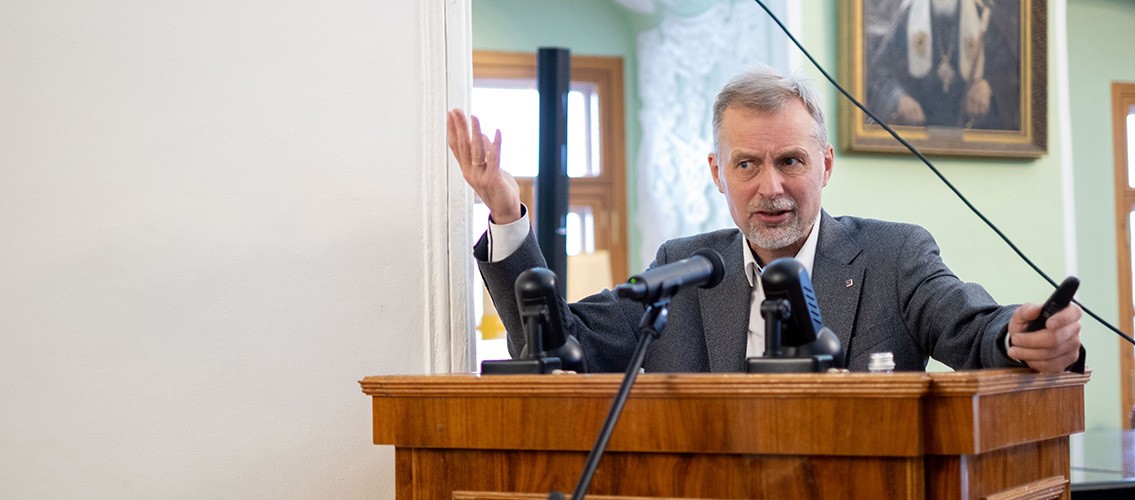
The Academy hosted the IV International Conference "Christian Heritage of the East"
On November 11, the Oriental Studies Cabinet of the Moscow Theological Academy headed by Deacon Sergiy Panteleev hosted an international conference "Christian Heritage of the East", which gathered leading world experts on History and cultural Christian heritage of The Middle East and neighboring countries. Bishop Theodorite, Rector of the Moscow Theological Academy, opened a plenary session at the Elizabethan Hall of the Academy Museum.
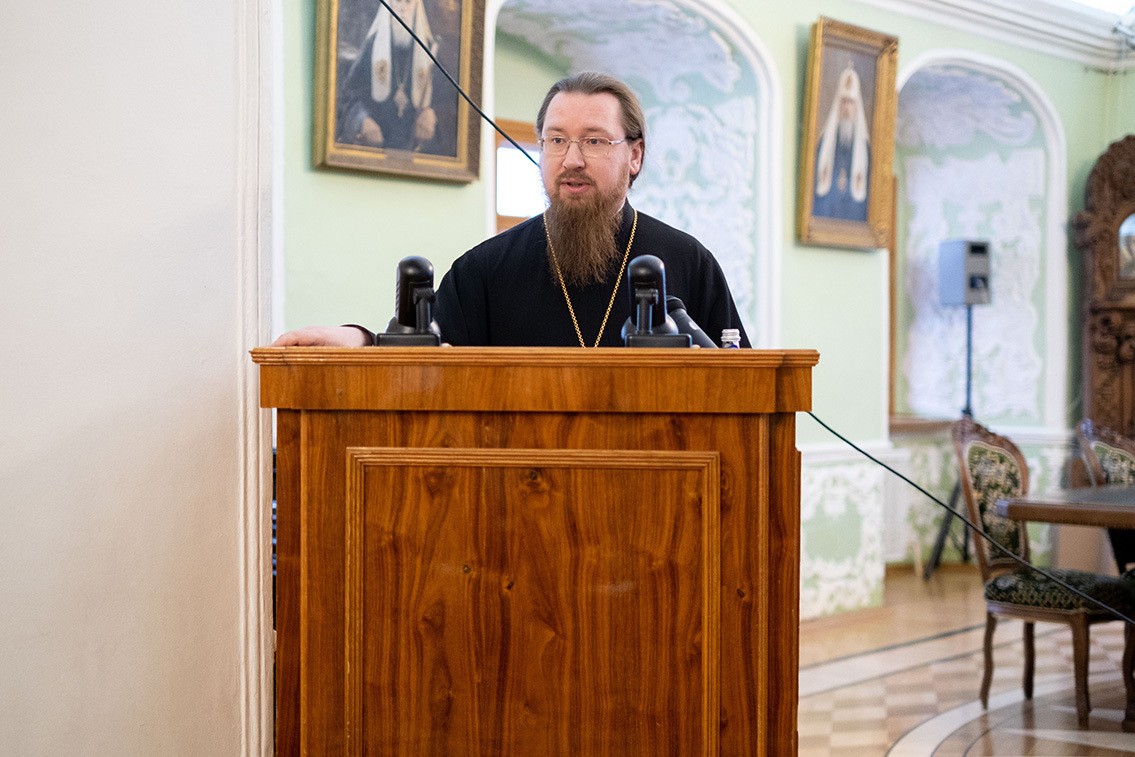
In his welcoming speech, Bishop Theodorite focused on the importance of studying Christian heritage of the East, which includes both individual researches in the area and a number of joint projects. In addition, the Rector noted that Christianity as a living tradition existing in the Middle East takes various forms that require their studying and our help.
Then, K.A. Panchenko and A.A. Voitenko presented a collective monograph “The Birth of the Christian East. Ethnocultural Explosions of the Late Antiquity”.
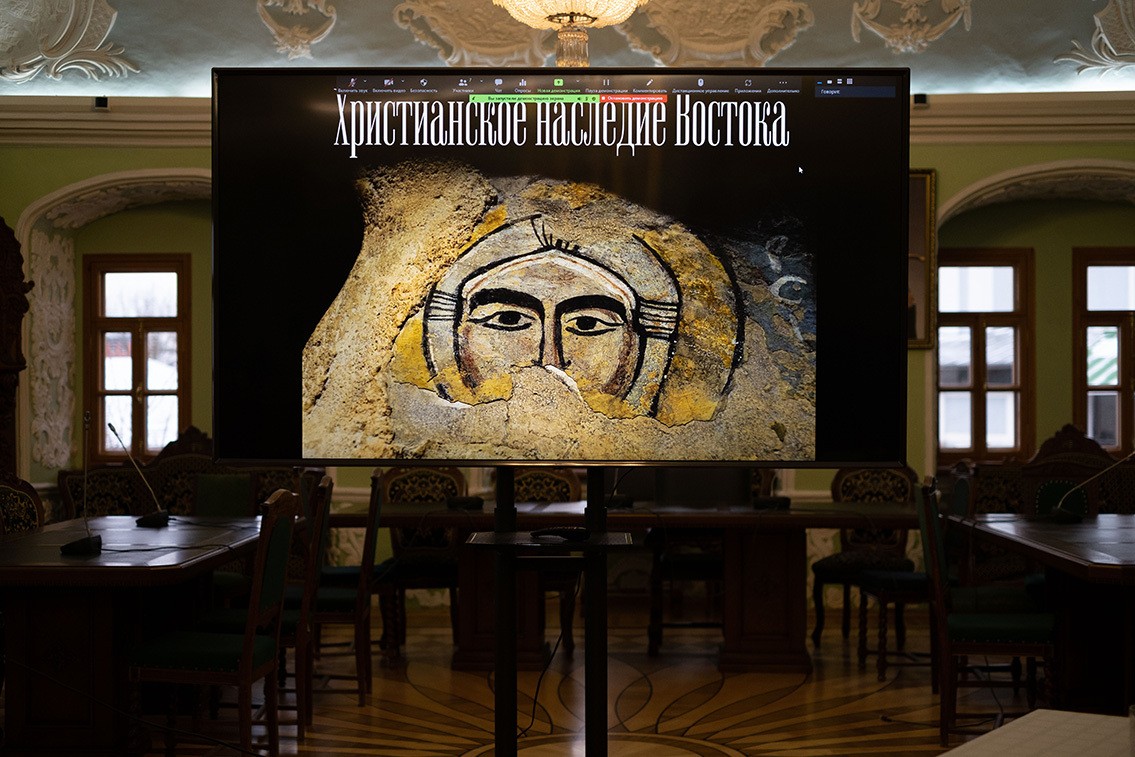
Natalya Gennadievna Golovnina gave an account of the Syrian monastic statutes of the IV-VIII centuries in their big diversity realized in the context of confessional differences between Eastern and Western Syrians.
The first section was mainly dedicated to the study of Christian written monuments of the East that was clear from the reports given by A.A. Voitenko, A.V. Muravyova, S.A. Frantsuzova, E.M. Shirinyan, A.A. Rogozhina, Hierodeacon Maxim (Sudakov) and G. Kazaryan. Deacon Sergiy Kozhukhov and E.A. Zabolotny gave their analysis of the anti-Chalcedonian activities of a number of Eastern thinkers. Priest Alexander Treiger, professor at Dalhousie University, reported on the form of Communion for the laity in the VIII-XIII centuries in various Eastern regions. The presentation of Deacon Sergey Panteleyev was dedicated to the place of the Trisagion Canto in the Divine service of the Armenian Church.
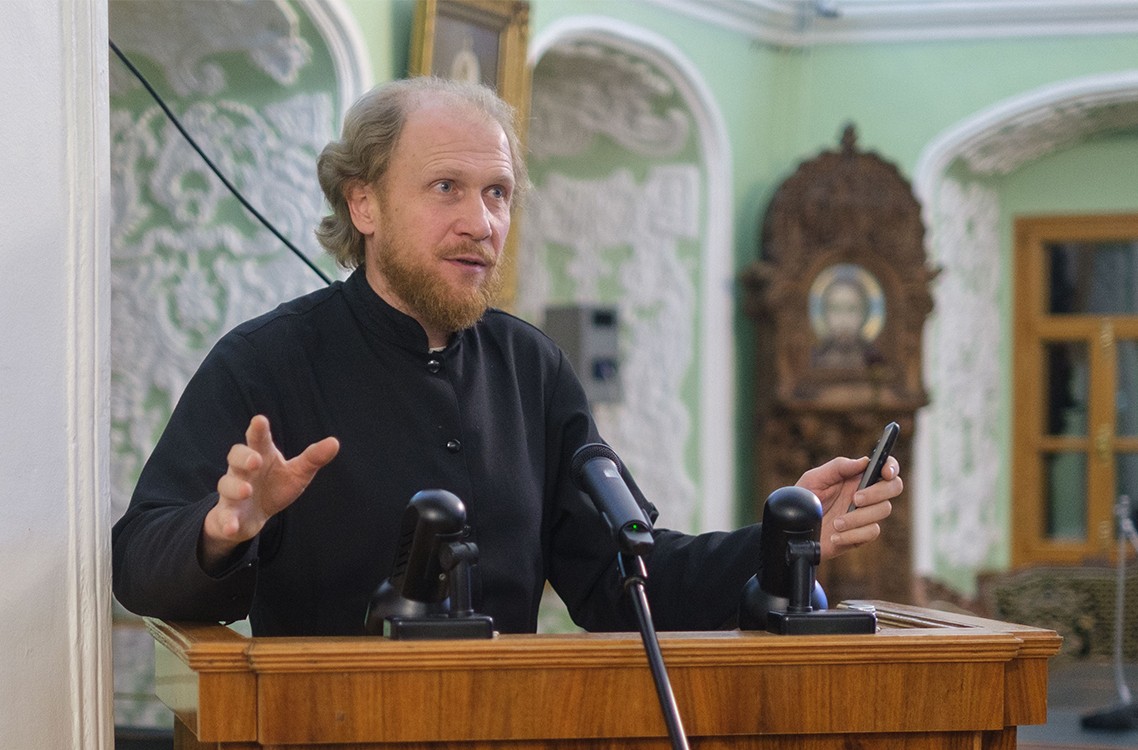
A range of topics at the second section gave an account of the "Russian presence" in Palestine and the relationship between the Russian Church and Local Churches of the East. There were the following reports: “Newly published diaries and memoirs of Archimandrite Cyprian (Kern) and the church ministry of the Russian emigration in the Balkans and the Holy Land in the 1920s – 1930s” (priest A. Zanemonets); “Theophylact bar Kanbar and the restoration of the Melkite Patriarchate of Antioch in Dar al-Islam” (S.P. Brune); Russian, Greek or Arab: the identity factors of the Seleucian Metropolitan Gerasim (Yareda) (E.M. Kopotya); “Attitude to the doctrine of the Armenian Church in ancient Russian literature (N.A. Semenchenko); “Russian pilgrims and their journey to Jerusalem: past and present (Hierodeacon George (Ramazyan); “On the problem of the relationship between the RDM and the IOPS during the presidency of the Grand Duchess Elizabeth Feodorovna (1905–1917): new discoveries” (E.Yu. Kovalskaya); “Russian women of the Holy Land in the vicissitudes of the Cold War: the history of the replenishment of women's monasteries in the 1950s” (N.A. Belyakova); “Some features of Russian-Arab cooperation in women's educational institutions of the IOPS” (E.V. Smirnova); “Beirut schools of the IOPS: a religious and political project of M.A. Cherkasova” (P.V. Fedotova). In the message of E.V. Gusarova considered the image “Christ in a crown of thorns” in a tradition of the Ethiopian Church.
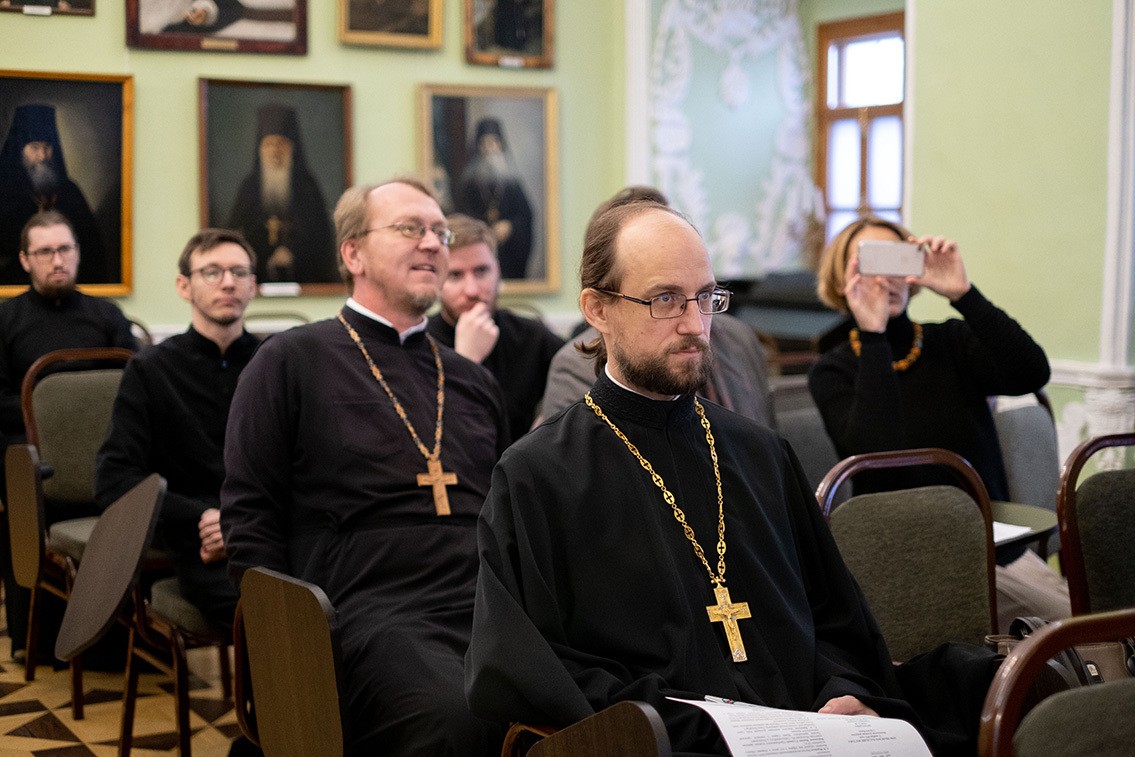
Apart from the MThA representatives, there were guests from Moscow, St. Petersburg and Omsk universities as well as researchers from Armenia, Greece, Canada and Israel. The study of the Christian heritage of the Middle East is a relatively young field of oriental studies opening some large perspectives both experienced and young researchers.
MThA Press Office
